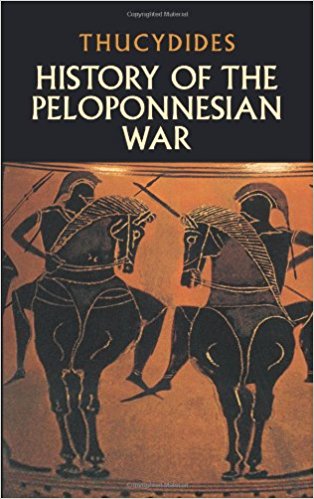|
The Story of the Goths: From the Earliest Times to the End of the Gothic Dominion
by Henry Bradley Published in 1887 176 Pages Thibault’s Score: 4/5 Over the last few years, I have extensively studied the late Roman Empire. Re-reading about the same history, this time from the perspective of the goths, was very enlightening. My previous opinion of the Goths was always tempered by the fact that they destroyed something that I love. However, reading history from the Gothic perspective helped broaden my understanding of the Dark Ages. The most interesting aspect was learning how the Roman Empire transitioned into the Medieval Feudal states that we know today - this process of transition had always confused me, no matter how much I studied. I especially enjoyed the part of the book that deals with the wars of Justinian against the Ostrogoths during the reconquest of Italy. I only had a vague understanding of how Belisarius and Narses fought against the Goths, and reading about the details of the sieges and battles was fascinating. Prior to reading this book, I ignorantly thought that Totila was a Hun because his name sounds like Attila. Reading about the reign of Totila was interesting - it reinforced my vague understanding that kings like Odoacer and Theodoric were much better than the late Roman Emperors. Finally, the book concludes with the history of the Visigoths. Although less tense and page turning than the section about the Byzantine Gothic Wars, this helped me understand the transition from Roman Empire to Medieval States. I wondered what happened to the Roman Latin speakers under the Gothic reign, and how they integrated with their new conquerers. This book very satisfactorily answered my question, at least in the case of Spain and France. I recommend this book, but only to people who already have a strong understanding of late Roman history. People who don’t already know a lot will likely be unable to follow.
1 Comment
History of the Peloponnesian War
by Thucydides Published in 400 BC 648 Pages Thibault’s Score: 3/5 The topic is interesting, but this is an extremely hard read. I struggled because of the sentence structure, ancient geography, obscure and dated cultural references, and difficult chronology. I do not recommend reading Thucydides cover to cover, the book is simply too complex for your average reader. I enjoyed many parts of the book, but was constantly lost and unsure of what was happening. That being said, this book is pure gold for historians and those who are passionate about Greek history. I learned a lot about the ancient Greeks, and learned a lot. For example, my perception of Sparta has completely changed. I no longer see Sparta as an alien civilization entirely predicated on war, but instead see them as much more human and 3-dimensional. The Spartans weren’t blind to the reality of the world they lived in, and were careful only to engage in conflicts that they thought they could win. They are diplomatic, cunning, and retreat in battle just like everyone else. I also get a different picture of Athens. Instead of a noble, and democratic republic I get the picture of a corrupt and decadent oligarchy. Athens subjugates and abuses its allies, and cannot be trusted to uphold its end of the bargain. Most interestingly was the depiction of negotiation and dialogs between the various factions. The most famous is the Melian Dialog, but there numerous others. Negotiations have changed remarkably little in the 2500 years since the events of the Peloponnesian War. Everything from the wording of treaties to the bargains that are cut could be pulled right out of any other conflict. Overall, there is a lot of interesting stuff here, enough to keep me interested enough to finish the entire book. However, I found it to be very difficult to read, and this wasn’t the most pleasant or engaging book. I recommend just reading the cliff notes. |
Thibault SerletMost of my articles are book reviews, but I also write about many other topics. Archives
December 2023
Categories |


 RSS Feed
RSS Feed